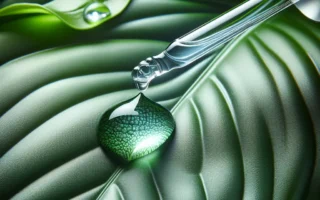Key Anti-aging Ingredients in Skincare Products
When it comes to anti-aging skincare products, the key to their efficacy lies in the ingredients they contain. The latest research on anti-aging ingredients in skincare products has shed light on several powerful compounds that can help target various signs of aging. One of the key ingredients that has garnered significant attention is retinol, a form of vitamin A. Retinol has been shown to stimulate collagen production, reduce the appearance of wrinkles, and improve skin texture and firmness.
Another important anti-aging ingredient is vitamin C, known for its antioxidant properties. Vitamin C helps protect the skin from free radical damage, brightens the complexion, and promotes collagen synthesis. Peptides are also gaining popularity for their ability to support skin renewal and improve the appearance of fine lines and wrinkles.
In addition, hyaluronic acid is widely recognized for its moisturizing and plumping effects on the skin. It helps retain moisture, resulting in smoother, more supple skin. Niacinamide, a form of vitamin B3, has been found to enhance skin barrier function, improve elasticity, and reduce redness and hyperpigmentation.
The latest research emphasizes the importance of incorporating these key anti-aging ingredients into skincare products to target multiple signs of aging and promote overall skin health. By understanding the science behind these ingredients, consumers can make informed choices and select products that are backed by evidence-based research.
The Science Behind Retinoids and Collagen-boosting Compounds
The latest research on anti-aging skincare products has brought to light the immense potential of retinoids and collagen-boosting compounds in reversing the signs of aging. Retinoids, derived from vitamin A, have long been revered for their ability to increase collagen production and stimulate cell turnover. These powerful compounds work at a cellular level to improve skin texture, reduce the appearance of fine lines and wrinkles, and enhance overall skin tone.
Scientific studies have demonstrated that retinoids can significantly boost the skin’s natural collagen production, leading to firmer, more elastic skin. Furthermore, retinoids have been shown to stimulate the production of hyaluronic acid, a crucial component for maintaining skin hydration and plumpness. As a result, the use of retinoids in skincare products has become a cornerstone in the fight against aging, garnering widespread attention from dermatologists and skincare experts alike.
In addition to retinoids, there has been a surge in the research and development of collagen-boosting compounds such as peptides and growth factors. Peptides, in particular, have shown remarkable potential in promoting collagen synthesis and improving skin elasticity. These smaller chains of amino acids can penetrate the skin and signal the fibroblasts to ramp up collagen production, effectively minimizing the appearance of wrinkles and sagging skin.
As the science behind retinoids and collagen-boosting compounds continues to evolve, skincare companies are increasingly integrating these potent ingredients into their products. Consumers are now able to harness the latest advancements in anti-aging research, with a plethora of serums, creams, and treatments designed to rejuvenate and revitalize the skin.
In conclusion, the latest research underscores the significant impact of retinoids and collagen-boosting compounds in anti-aging skincare. With their proven ability to enhance collagen production and improve skin firmness, these ingredients represent a cutting-edge approach to combat the visible signs of aging. As science paves the way for innovative skincare solutions, the future looks promising for those seeking effective anti-aging interventions.
Natural Extracts and Their Impact on Skin Renewal
Recent research on anti-aging ingredients in skincare products has shed light on the significant impact of natural extracts on skin renewal. Natural extracts, derived from plants such as green tea, aloe vera, and fruit extracts, have gained attention for their potent antioxidant and skin-rejuvenating properties. Studies have shown that these natural extracts contain high levels of polyphenols, vitamins, and minerals that help combat signs of aging and promote skin health.
Green tea extract, for instance, is rich in epigallocatechin gallate (EGCG), a powerful antioxidant that helps protect the skin from environmental damage and reduces the appearance of fine lines and wrinkles. Likewise, aloe vera extract contains enzymes and amino acids that promote the regeneration of skin cells, leading to a more youthful and radiant complexion.
Fruit extracts, including those from berries and citrus fruits, are packed with vitamin C and other antioxidants that aid in collagen production and skin firmness. These extracts also help in brightening the skin and diminishing hyperpigmentation, resulting in a more even skin tone.
Furthermore, natural extracts such as licorice root and ginseng have been found to possess anti-inflammatory and skin-soothing properties, making them valuable additions to anti-aging skincare formulations.
As the demand for clean and natural skincare products continues to rise, the incorporation of these natural extracts in anti-aging formulations is expected to grow. Consumers are increasingly seeking skincare products that harness the power of nature to promote skin renewal and combat the effects of aging, driving the research and innovation in this area.
In conclusion, the latest research emphasizes the profound impact of natural extracts on skin renewal and anti-aging. Their abundance of antioxidants, vitamins, and minerals make them valuable allies in the fight against aging, offering effective and sustainable solutions for maintaining youthful and healthy skin.
Exploring Peptides and Hyaluronic Acid in Anti-aging Formulations
Recent research in skincare industry has been focusing on exploring the benefits of peptides and hyaluronic acid in anti-aging formulations. Peptides, which are chains of amino acids, play a crucial role in stimulating collagen production and improving skin elasticity. They also aid in reducing the appearance of fine lines and wrinkles, making them key ingredients in anti-aging products.
On the other hand, hyaluronic acid is renowned for its exceptional hydrating properties. As we age, the natural production of hyaluronic acid in our skin decreases, leading to dryness and loss of firmness. However, incorporating hyaluronic acid in skincare formulations helps in retaining moisture, plumping the skin, and diminishing the visible signs of aging.
Furthermore, the latest studies have revealed that combining peptides with hyaluronic acid can significantly enhance the overall anti-aging effects. The synergistic action of peptides and hyaluronic acid promotes firmness, improves skin texture, and diminishes the appearance of wrinkles, thereby providing a more comprehensive approach to anti-aging skincare.
As the demand for effective anti-aging products continues to grow, the integration of peptides and hyaluronic acid in skincare formulations is proving to be a promising solution. Researchers and skincare experts are delving deeper into the potential of these ingredients, striving to develop innovative formulations that address the diverse concerns associated with aging skin.
In conclusion, the research on peptides and hyaluronic acid in anti-aging skincare products signifies a significant advancement in the quest for age-defying solutions. By harnessing the benefits of these potent ingredients, skincare formulations are poised to offer enhanced results, catering to the evolving needs of consumers seeking effective anti-aging solutions.
The Role of Mitochondrial Antioxidants in Preventing Skin Aging
Recent research on anti-aging ingredients in skincare products has shed light on the crucial role of mitochondrial antioxidants in preventing skin aging. Mitochondria are known as the powerhouse of the cell, producing energy and playing a vital role in skin health. As the skin ages, mitochondrial function declines, leading to increased oxidative stress and a decrease in energy production, which ultimately contributes to the visible signs of aging.
Scientists have been focusing on the development of skincare products containing potent mitochondrial antioxidants to address this issue. These antioxidants work by neutralizing free radicals and supporting mitochondrial function, thus helping to maintain youthful and healthy-looking skin.
One of the key mitochondrial antioxidants that has been the focus of research is Coenzyme Q10 (CoQ10). Studies have shown that applying CoQ10 topically can help to reduce oxidative damage, improve mitochondrial function, and ultimately prevent the signs of aging. Another promising mitochondrial antioxidant is idebenone, which has demonstrated remarkable abilities in protecting skin cells from oxidative stress and promoting cellular energy production.
Furthermore, incorporating these mitochondrial antioxidants into skincare products has shown promising results in terms of improving skin elasticity, reducing wrinkles, and overall rejuvenation of the skin. As the understanding of the role of mitochondrial antioxidants in preventing skin aging continues to evolve, it is expected that skincare formulations targeting mitochondrial health will play a significant role in the future of anti-aging skincare.
Innovations in Delivery Systems for Anti-aging Actives
When it comes to anti-aging skincare, the delivery system for active ingredients is a crucial aspect of product efficacy. In recent years, there have been significant innovations in the delivery systems for anti-aging actives, leading to more effective and targeted results in skincare products.
One of the most exciting developments is the use of nanotechnology in skincare formulations. Nanoparticles allow for better penetration of active ingredients into the skin, enhancing their effectiveness. This technology also enables targeted delivery, ensuring that the anti-aging actives reach the specific layers of the skin where they can have the most benefit.
Another innovative delivery system involves the use of microencapsulation. This technique involves enclosing the active ingredients in tiny capsules, which can then be released gradually onto the skin. This not only prolongs the release of the actives but also protects them from degradation, maintaining their potency for longer periods.
Furthermore, advances in lipid-based delivery systems have contributed to improved stability and permeation of anti-aging ingredients. Liposomes and solid lipid nanoparticles are being utilized to encapsulate and deliver actives, allowing for better absorption and bioavailability.
Overall, these innovations in delivery systems for anti-aging actives are revolutionizing the efficacy of skincare products. By ensuring optimal penetration and targeted delivery of key ingredients, these advancements are paving the way for more advanced and impactful anti-aging formulations.



